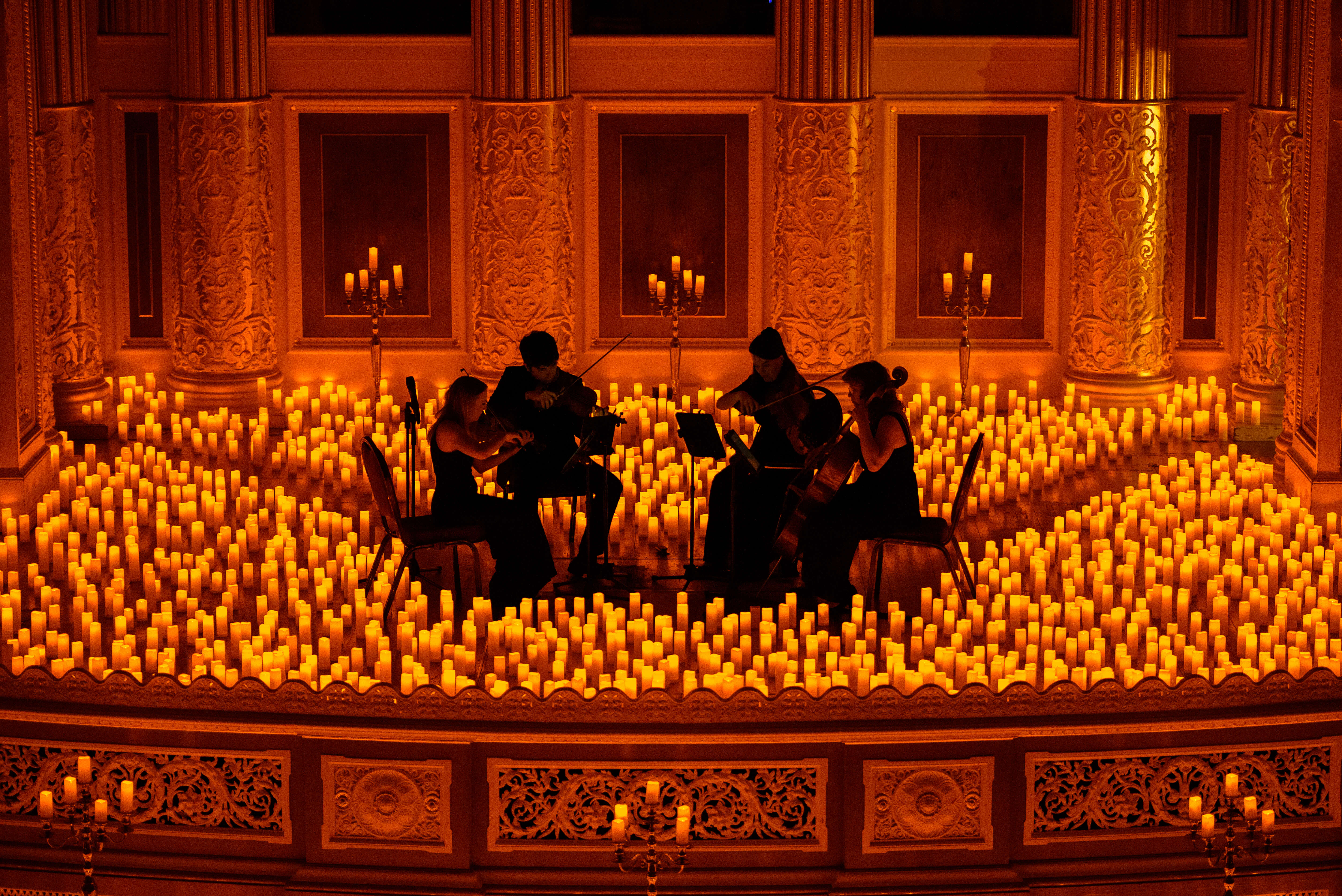By Patricia Kiernan Johnson, JerseyArts.com
originally published: 10/25/2018

You might not know it, but starting this Friday, October 26, through Sunday, November 4 is National Opera Week. Looking for a way to celebrate? Try seeing Vincenzo Bellini’s opera “Norma,” presented by the New Jersey Association of Verismo Opera, at the Bergen Performing Arts Center (bergenPAC) this Sunday, October 28 at 3:00 p.m.
“Norma,” first performed at La Scala in Milan in 1831, is a really important (though kind of late) work of the bel canto era of opera. “Bel canto” is Italian for “beautiful singing,” and it refers to operas – especially Italian ones – written in the 18th and early 19th centuries that generally emphasized beauty and evenness of tone, long phrases and highly ornamental vocal passages (think vocal fireworks). And if the phrase “bel canto” sounds familiar, you might remember the Ann Patchett novel of the same name, published in 2001, which later became both an opera (I know; so meta) in 2015 and a movie with Julianne Moore in 2018.
Bellini’s opera “Norma” is based on the French play “Norma, ou L’infanticide” (“Norma, or The Infanticide”) by Alexandre Soumet (belated spoiler alert: “Norma” isn’t a comedy). Apparently, the first performance of “Norma” wasn’t a huge hit, but it pretty quickly caught on and became a staple of the repertoire. One major proponent of this particular opera was the very famous Maria Callas, who performed the role a stunning 89 times.
Bel canto operas fell out of fashion in the latter part of the 19th century, but saw a revival in the 20th century. While “Norma” is not likely to regain its position as one of the most frequently performed operas today, it was produced by five different opera companies in the 2017–2018 season.
Two epic pieces of fun trivia for your next cocktail party:
- The lead role of Norma was first sung by soprano Giuditta Pasta. Nope, no typo: that’s really her last name. You don’t get more Italian than that, I guess!
- “Norma” has one really, really famous aria: “Casta diva.” Apparently in rehearsals, Pasta balked at the aria, saying that it didn’t suit her vocal talents (singers did have a little bit of say in their parts in this era and roles were often written specifically for the talents of the cast). But, luckily for us, Bellini convinced Pasta to give it a good shot and the aria was kept in the opera.
The Plot
“Norma” takes place in ancient Roman-occupied Gaul (a region encompassing all of France and parts of Germany, the Netherlands, Switzerland, etc.) around 100–50 BCE.
Act 1: The chief of the Druids, Oroveso (who is also Norma’s father), leads the Druids in a procession to pray for victory against the Romans. The Druids also pray that their high priestess Norma will show up and broker a peace with the Romans.
Norma has secretly broken vows and loves a Roman proconsul named Pollione and bore him two children (how she kept THAT a secret is beyond me). Pollione shows up and tells his friend Flavio that he doesn’t love Norma anymore and now loves Adalgisa (somebody ought to give that girl a head’s up). Pollione is feeling a little guilty about this and has had some bad dreams, telling of bad things to come. When the two guys hear trumpets announcing Norma’s arrival, Pollione says he will confront the Druids with the Romans’ superior power and overthrow their altars.
Norma comes to the altar and declares that Rome will one day fall by being worn down, not through a great fight. She approaches the altar, bringing mistletoe, and sings a plea to the moon (yup, it’s “casta diva” time). After more prayers, she tells herself that she can’t hurt Pollione, but hopes things can return to the way they used to be. Everyone heads out.
Later that night, Pollione goes to Adalgisa (his latest favorite priestess-of-the-month), who is a little sad over having gotten involved with Pollione. She sort of rejects him, but he declares his love. Pollione says he has to go back to Rome the next day and begs her to come with him. At first, Adalgisa resists, but then appears to agree.
At Norma’s house, she’s kind of conflicted about her two kids. – I suppose one could call this foreshadowing. Or is it? – Norma tells her maid that Pollione has to go back to Rome, but she’s not sure if he’ll take her and/or the kids with him. Adalgisa shows up and tells Norma that’s she’s in love with an unnamed Roman (really, the moral of all operas is that secrets – especially secret loves – are a terrible idea). Adalgisa begs Norma for help to be free of her vows and to flee with her lover. Norma agrees. A few minutes later, Pollione shows up and Norma finds out that he’s Adalgisa’s lover. Commence many intricate, heated trios about love, treachery, etc. The end result: Norma is angry at Pollione, Adalgisa tries to make Pollione go back to Norma, and Pollione is mad that he ever met Norma.
Act 2: Norma looks at her two kids – knife in hand – and thinks about killing them. But she hesitates and they wake up. Adalgisa shows up and Norma tells her to take the two kids to Pollione and go with him. Although Adalgisa says she’ll never leave Gaul, she wants to help Norma. Adalgisa goes to Pollione and tries to convince him to go back to Norma. – That never works, ladies. – Adalgisa then renounces Pollione, giving him up.
Norma shows up at the temple and hears that Adalgisa is coming back to take her vows, but that the Romans are going to abduct her at the temple. Norma is super angry at this news and hits the gong that summons the Druid soldiers to war. They sing of “war, war!” and Norma sings of “blood, blood! Revenge!”
But when you’re a Druid high priestess, things aren’t that simple. In order to complete the rites to authorize war, she’s gotta have a sacrificial victim. Norma’s servant comes in, saying that a Roman had come to desecrate the temple, but he was caught. Guess who it is? Pollione, of course! The crowd urges Norma to use him as the sacrifice, but she just can’t bring herself to do it. When the crowd asks why, she says she has to question him first. The crowd leaves.
Norma says that if Pollione shuns Adalgisa foverever, Norma will release him. Pollione refuses and so Norma says she’s going to kill their kids. Pollione begs her to kill him instead, but Norma says that all the Romans are going to die in the war, as will Adalgisa who has broken her priestess vows (umm… pot, meet kettle).
Norma decides that Adalgisa should be the sacrifice and orders a pyre built. However, Norma then reveals to the crowd that she herself will be the sacrifice, since she’s broken her vows and had kids with the enemy. Norma begs her father to spare her children and watch over them. As she prepares to jump into the flames, Pollione decides that he loves her (again) and joins her in dying on the sacrificial pyre. So, um, yeah…
Like many operas, Norma is not known for its plot. Rather, it’s the music and emotion that makes this piece endure.
In Verismo Opera’s “Norma,” the title role is sung by Jessica Sandidge; Benhamin Sloman sings Pollione and Viktoriya Koreneva sings Adalgisa. The opera is sung in Italian, but don’t worry; there are English supertitles (translations projected above the stage). The orchestra will be conducted by principal conductor and music director Lucy Arner. Evelyn La Quaif, general manager and stage director, directs the fully-staged opera.
Verismo Opera last performed “Norma” in May 1997, under the baton of Anthony Morss, emeritus music director and principal conductor. Verismo Opera dedicates this new production of “Norma” in his memory. Of Maestro Morss, Verismo Opera Artistic Director Lucine Amara said, “A man of great intellect, he possessed a humble nature. We never heard him utter a negative word about any human being. Our deep sorrow cannot be measured. He will be missed for a very long time.”
The Details
Verismo Opera presents Bellini’s “Norma” on Sunday, October 28 at 3:00 p.m. at bergenPAC, located at 30 North Van Brunt Street in Englewood. Tickets ($25 – $55) may be purchased at 800-745-3000 or 866-448-7849 or online at bergenpac.org. Seniors receive a 10% discount and children (under 12) are eligible for $10 tickets — just note that these discounts are not available for purchase online. For more information about Verismo Opera, visit verismoopera.org or find them on social media: Facebook and Twitter (@NJVerismoOpera).
Bonus Details: National Opera Week!
Enjoyed Verismo Opera’s performance of “Norma?” Or just plain love opera? Share your story on social media with #OperaWeek. Learn more about National Opera Week and all the events happening throughout North America at operaamerica.org/OperaWeek.
About the author: Patricia, Jersey born and bred, is a lifelong arts lover, arts patron, performer and artist. One of the very few people who actually cheers when The Dreaded Opera Category shows up on Jeopardy, Patricia is also an avid Yankee fan (from birth) and is learning to become an Eagles fan (from marriage).
Content provided by
Discover Jersey Arts, a project of the ArtPride New Jersey Foundation and New Jersey State Council on the Arts.
FEATURED EVENTS
To narrow results by date range, categories,
or region of New Jersey
click here for our advanced search.
To narrow results by date range, categories,
or region of New Jersey
click here for our advanced search.
EVENT PREVIEWS
Middletown Arts Center presents the MAC Music Café: Under the Western Sky
January 25, 2026
bergenPAC presents Gospel Music Legend Yolanda Adams
January 29, 2026
People Get Ready: A "Blues & Rock 'N' Roll Summit" is coming to Lizzie Rose Music Room featuring Glenn Alexander & Shadowland plus James JB Barnes & The JB Blues Band
January 30, 2026
Prudential Center presents Rascal Flatts with Openers Lauren Alaina and Chris Lane
January 30, 2026
Algonquin Arts Theatre presents Magical Mystery Doors
January 31, 2026
State Theatre New Jersey presents Freestyle Flashback Concert 2026 on January 31st
January 31, 2026
The Levoy Theatre presents Dead On Live
January 31, 2026
Centenary Stage Company presents Big Beat Big Band as part of the Winter Thaw Music Festival
January 25 to February 1, 2026
Black History Month Celebration in Madison: Louis Armstrong's Early Life and Music
February 1, 2026
New Jersey Youth Chorus Presents Winter Concert Featuring Young Talent on February 1st
February 1, 2026

















